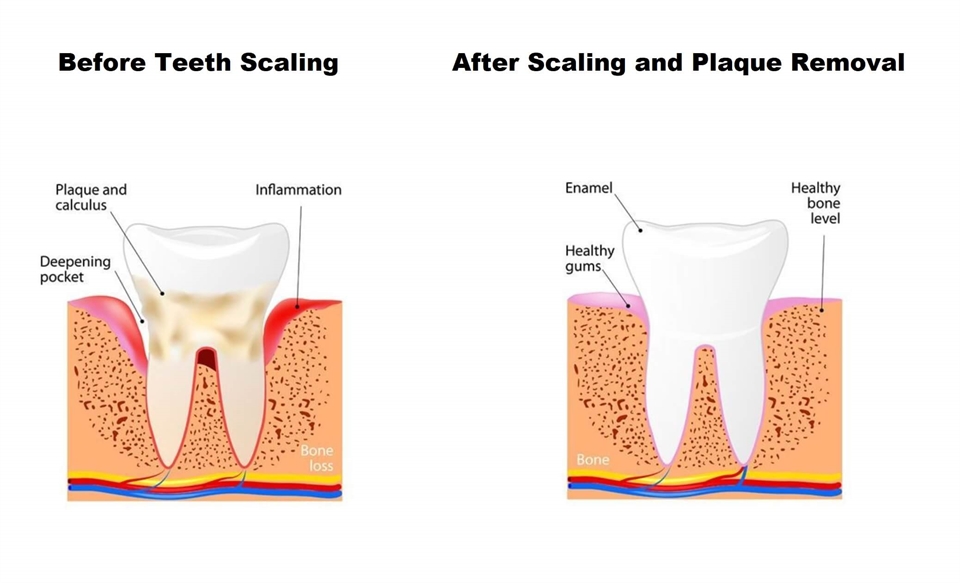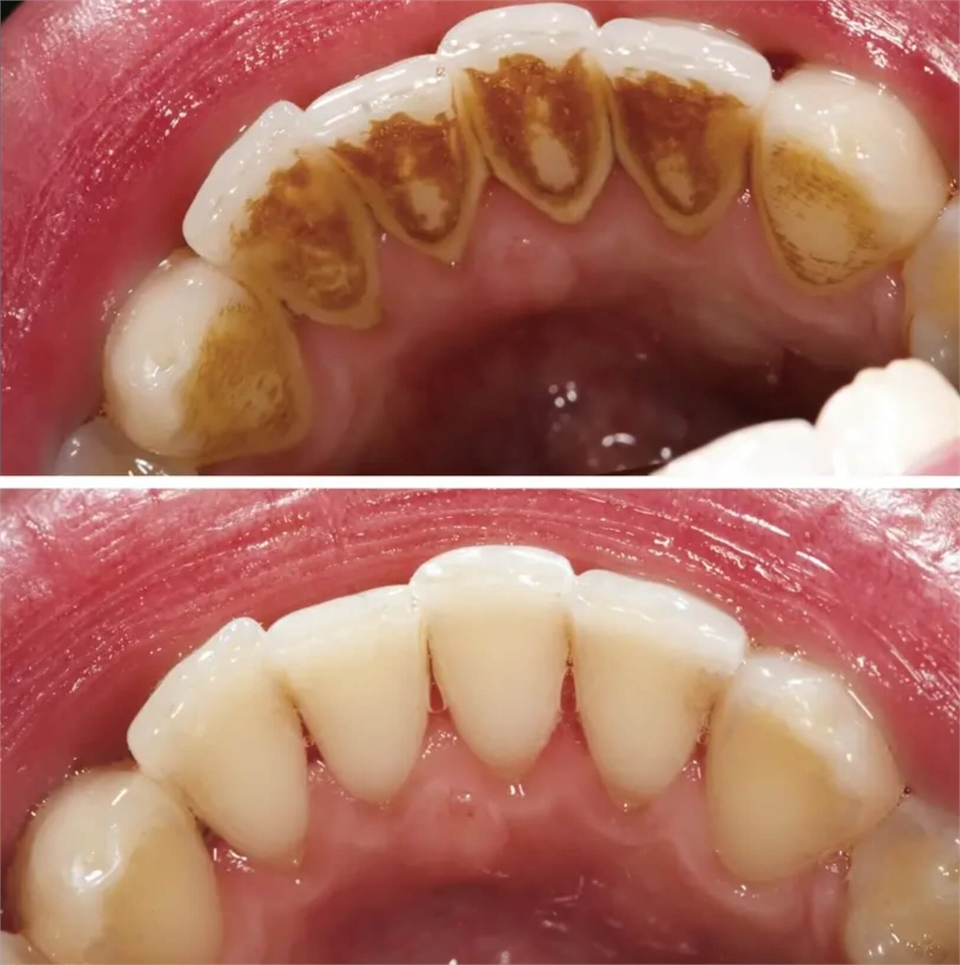When is teeth scaling considered urgent?
Scale and polish procedure can be classified as dental emergency

One of the most challenging things in the ever hectic 21st century is to maintain a good oral hygiene with a toothbrush. People often neglect or do not understand the importance of having a proper oral health by resorting to faulty brushing techniques or missing out on cleaning all the surfaces of each tooth. This very habit paves the way for harmful microorganisms to invade the oral cavity, and cause problems that might affect the social lives of many.
The microorganisms get accumulated on the surfaces of the tooth and the gum lines. They assert their effect by causing swelling of the gums. These gums can get more sore and recede, which can be a painful experience for an individual during routine brushing and flossing.
When the gums recede, the tissues surrounding it also get affected. These tissues that serve as an attachment between the tooth and the gums loosen up, forming an unwanted structure called the pocket. This pocket is like a racing track for the microorganisms. Through this pocket, the pathogens reach the region wherein the tooth is fixed in its socket. Next, the once swollen gums (gingivitis) will get upgraded, leading to periodontitis. This is a condition that affects the bone where the tooth is attached. A severe form of this condition leads to mobile teeth.
Pocket formations also voice the status of your oral health. This is because the plaque or calculus that got accumulated by the activity of the microorganisms can radiate chemicals that can worsen your breath. This condition where foul smell or bad odor is evident because of the ill-regulation of a person's oral health is termed as halitosis.
The above-mentioned conditions including swollen gums, pocket formations, bad breath, mobile teeth, deposition of calculus are the signs that an individual needs a professional cleaning from a dentist. This procedure is called scaling. It is often accompanied with root planning in more severe cases. So what is scaling and root planning?
Scaling has may dimensions to it than simply cleaning of the teeth. A dentist can do this by two modes: hand scaling or ultrasonic scaling. Hand scaling is opted by the dentists very rarely in today's times. There are instruments called hand scalers and curettes that a dentist uses in order to remove plaque and debris from the oral cavity.
Ultrasonic scaling is the more favored technique of the dentists. It involves the usage of a scaler tip attached to a handpiece that is connected to a main unit. This unit has controls wherein the dentist adjusts the frequency of ultrasonic waves to the scaler tip. An advantage of ultrasonic scaling is that the ultrasonic waves can break down calculus with much more ease compared to hand scaling. The handpiece also houses a passage from which a thin stream of water is released. The combination of ultrasonic waves and water leads to the formation of aerosols that are capable of eliminating microorganisms from the tooth and deeper tissues surrounding it.
A root planning is done when the plaque or calculus have travelled below the gum line. Areas which your toothbrush cannot reach are cleaned through root planning. The cleaning instrument is moved in this region to eliminate all the tartar and pockets that are responsible for the worsening of oral health.
Scaling and root planning might be done in two sessions depending on how severe the condition is. Following the treatment, a individual might feel his teeth to be more sensitive. Hence, a dentist can prescribe a desensitizing toothpaste. In conjunction with this, a mouthwash is also prescribed in order to ensure a thorough maintenance of regions like the gumline and the gums themselves. In very severe cases, a dentist might place certain antibiotics within the periodontal tissues that are released gradually in order to eliminate the bacteria.
Following the removal of all the pathogens one can definitely expect their oral health to heal again. However, it is not an overnight process. It is recommended to wait for 90 days to see a rewamp of the oral health. In this waiting phase, it is important that the individual maintains his oral hygiene thoroughly as advised by the dentist. A person should undergo a scaling and root planning procedure at least once a year in order to keep in check the condition of the teeth and the surrounding tissues.
1 Copper Row, London Bridge
London, SE1 2LH
England
United Kingdom
OPEN 24 HOURS A DAY,
7 days a week, 365 days


